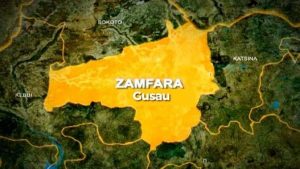CBN Issues Directives as Abuja Bureau De Change Operators Suspend Operations

The Bureau De Change (BDC) operators in Abuja have suspended their operations in response to the significant depreciation of the Nigerian naira against the United States dollar. This decision was made due to the rising exchange rates, which have led to concerns about the stability of the currency.
On Thursday, several BDC shops in the Wuse Zone 4 area of Abuja were found closed, with the usually bustling streets now deserted. The operators cited the continuous increase in the dollar’s price as the reason for the shutdown, emphasizing their efforts to control the exchange rate.
During the closure, attempts by motorists to stop near the Zone 4 premises were discouraged, and currency traders who defied the order were warned or escorted away by security personnel stationed at strategic points in the market area.
According to Aliyu Wireless, a BDC operator at Zone 4, the union had instructed its members not to engage in trading activities due to the escalating exchange rates. Another dealer, Shinkafi, confirmed this directive, expressing uncertainty about when they would be allowed to resume operations.
This action followed the announcement by the BDC association’s Chairman, Abdulahi Dauran, who declared the suspension of operations to address the unprecedented depreciation of the naira against the dollar.
The recent depreciation of the naira has been a cause for concern in Nigeria, with the currency hitting record lows in both the official and unofficial markets. This week, the naira’s value plummeted to N1,482 against the US dollar on the official market, prompting the Central Bank of Nigeria (CBN) to issue new directives to Deposit Money Banks (DMBs).
In a circular issued on Wednesday, the CBN ordered banks to sell their excess dollar stock by February 1, 2024, to mitigate the risks associated with foreign currency exposure. The directive aims to ensure that banks manage their foreign exchange risks effectively and avoid potential losses that could impact the financial system.
The CBN also set limits on banks’ Net Open Position (NOP) for foreign currency assets and liabilities, requiring them to comply with the prudential limits by the specified deadline.
Premium Times








